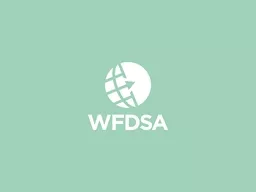PPT-The Louisiana Code of Governmental Ethics
Author : breezeibm | Published Date : 2020-06-17
Transition Team 2018 The Code of Governmental Ethics What do I need to know How does it affect me WHAT IS THE PURPOSE OF THE CODE OF GOVERNMENTAL ETHICS ADDRESSES
Presentation Embed Code
Download Presentation
Download Presentation The PPT/PDF document "The Louisiana Code of Governmental Ethic..." is the property of its rightful owner. Permission is granted to download and print the materials on this website for personal, non-commercial use only, and to display it on your personal computer provided you do not modify the materials and that you retain all copyright notices contained in the materials. By downloading content from our website, you accept the terms of this agreement.
The Louisiana Code of Governmental Ethics: Transcript
Download Rules Of Document
"The Louisiana Code of Governmental Ethics"The content belongs to its owner. You may download and print it for personal use, without modification, and keep all copyright notices. By downloading, you agree to these terms.
Related Documents














